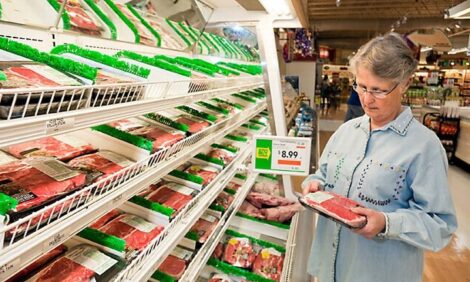



China Lifts Ban on British Beef
CHINA - British beef will soon be exported to China for the first time in more than 20 years, after the Chinese government lifted an import ban it imposed in the 1990s during an outbreak of bovine spongiform encephalopathy (BSE), also known as mad cow disease.United Kingdom Chancellor of the Exchequer Philip Hammond announced on Tuesday that an agreement to lift the ban had been reached. He made the announcement from Beijing where he was taking part in talks about the economy.
"Delighted that I have agreed with Chinese Vice-Premier Hu Chunhua that China will lift the BSE ban on British beef," Mr Hammond announced via Twitter. "This is great news for British farmers."
China agreed to begin the process of lifting the ban during Prime Minister Theresa May’s visit to China in February. In May, Chinese officials conducted successful inspections of several meat-processing plants and other facilities in the UK.
The nations must now draw up an export protocol and reach agreement about a health certificate before exports can begin. The process will likely continue into next year, according to the UK Agriculture and Horticulture Development Board, which is known as the AHDB.
British beef exports halted in 1996 due to an outbreak of BSE, a fatal neurodegenerative disease that can spread from cattle to humans. The outbreak led to the death of 180,000 cows and more than 150 people in Britain.
The European Union lifted its ban on British beef in 2006, with the United States following in 2016. The reversal of the China ban now gives British farmers access to one of the world’s fastest-growing markets.
"Today’s announcement is a huge coup for British businesses who want to access global trading opportunities as we leave the European Union," said UK International Trade Secretary Liam Fox. "This is a crucial step on our role in becoming a truly global Britain."
In 2016, China became the world’s second-largest beef importer, behind the United States. It imports 800,000 metric tons, worth $2.6 billion.
Chinese reliance on beef imports grew in 2017, when consumption rose by 4 per cent, outstripping domestic production, which increased by 1 per cent.
"Today’s milestone will help to unlock UK agriculture’s full potential and is a major step to forging new trading relationships around the globe," said UK Environment Secretary Michael Gove.
More than 90 per cent of British beef exports are to countries within the EU. However, non-EU markets are growing. In the first half of 2017, non-EU exports rose 62 per cent, to 23.5 million pounds ($32.8 million).
Phil Hadley, international market development director at the AHDB, said China provides a new market for premium beef, as well as for “fifth quarter” cuts, including offal, which are not popular in the UK. The ADHB estimates that beef exports to China could contribute 250 million pounds to the UK economy.
"From a farming and processing point of view, this is really positive, because it’s such a big market and it’s a great opportunity to increase demand, which will produce benefits across the whole sector," Mr Hadley told China Daily.
TheCattleSite News Desk


